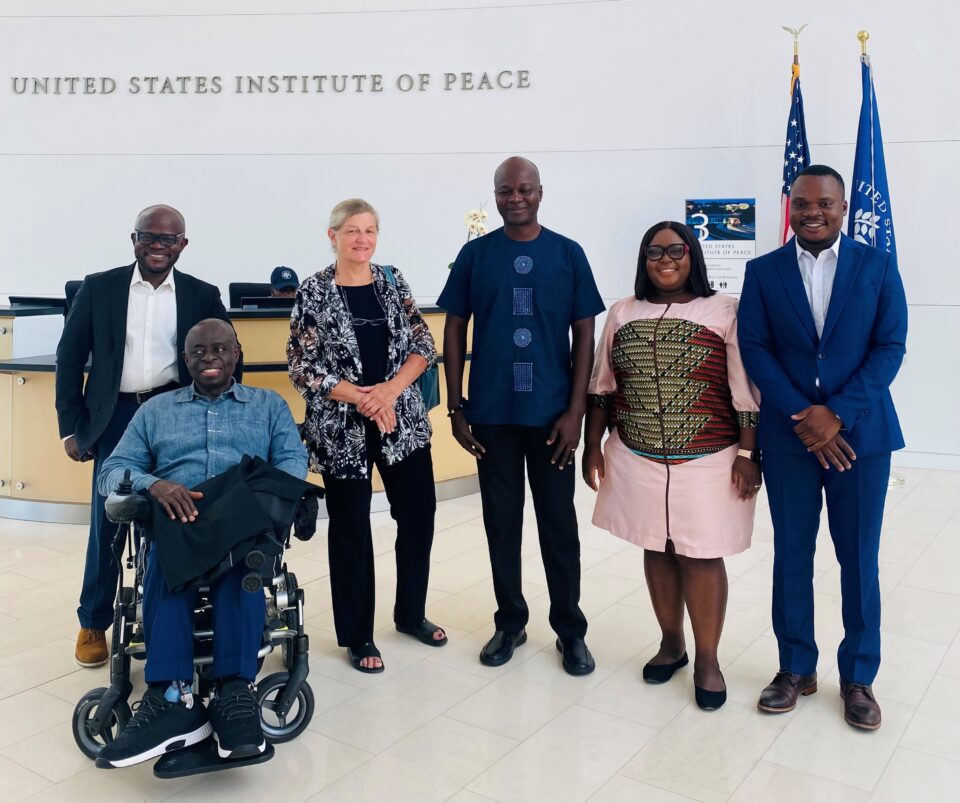In Engagement With US Africa Policy Actors
A delegation from Afrobarometer arrived Monday in Washington, D.C., for a series of highlevel meetings and presentations with partners, including the United States Institute of Peace, the World Bank, and the United States Agency for International Development (USAID). The delegation’s visit will provide an opportunity to share insights from Round 9 of Afrobarometer’s surveys conducted in 39 African countries.
“Our delegation’s presence in Washington, D.C., underscores our commitment to building bridges and sharing evidence that can drive positive change in African countries,”
Afrobarometer CEO Joseph Asunka said. “Afrobarometer’s over-two-decades’ worth of data
is a powerful tool for assessing needs, setting policy priorities, targeting interventions, measuring achievements, and promoting accountability. We look forward to fruitful discussions with our partners.”
On Tuesday the delegation – including Board Chair E. Gyimah-Boadi, Asunka, Director of
Analysis Carolyn Logan, Chief Operating Officer Felix Biga, and Communications and Knowledge Manager Josephine Sanny – will engage with U.S. State Department representatives, non-governmental organisations, and congressional staffers at a convening hosted by the United States Institute of Peace. Discussions will focus on pressing issues affecting Africans and Afrobarometer’s latest survey findings on democracy, governance, climate change, and youth.
On Wednesday, Afrobarometer will share key survey findings with representatives of USAID and other partners. The forward-looking session will also offer insights into plans for Afrobarometer’s Round 10, including new survey modules and innovations.
During its three-day mission in Washington, the Afrobarometer delegation is also scheduled to meet with Humanity United and the Africa Chief Economist of the World Bank to discuss potential areas of collaboration and knowledge sharing.
About Afrobarometer
Afrobarometer (AB) is a trusted source of high-quality data and analysis on the experiences, attitudes, and preferences of African citizens. With an unmatched track record of 350,000+ interviews in 42 countries, representing the views of 75% of the African population, AB is leading the charge to bridge the continent’s data gap. AB data inform many global indices, such as the Ibrahim Index of African Governance, Transparency International’s Global Corruption Barometer, and the World Bank’s Worldwide Governance Indicators. The data are also used for country risk analyses and by credit rating and forecasting agencies such as the Economist Intelligence Unit. All AB data sets are publicly available on the website and may be analysed free of charge using AB’s online data analysis tool.

